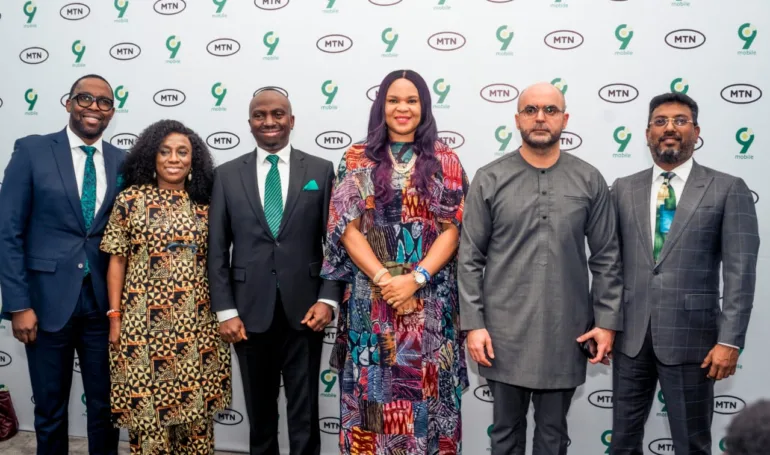Telecom operators MTN Nigeria and 9mobile have begun pilot testing a groundbreaking radio access network (RAN) sharing agreement, with full nationwide rollout expected before the end of July, pending system validation and stability checks.
The agreement, approved by the Nigerian Communications Commission (NCC), allows 9mobile to access MTN’s extensive RAN infrastructure across Nigeria, while retaining full control of its core network, billing systems, and customer data.
At a joint press briefing in Lagos on Thursday, 9mobile CEO Obafemi Banigbe described the three-year deal as a key part of the company’s turnaround strategy.
“We’re pleased to confirm a national infrastructure-sharing agreement with MTN,” Banigbe said. “This partnership allows us to expand coverage by leveraging MTN’s radio infrastructure in areas where we currently have limited or no presence. It’s not a merger, not a coalition—just a smart, commercial collaboration rooted in efficiency.”
The partnership comes at a pivotal time for 9mobile, which has seen its subscriber base fall from over 23 million in 2015 to just under three million in 2025—representing Nigeria’s smallest market share among mobile network operators at 1.9%.
Industry analysts attribute the decline to persistent issues including poor network quality, frequent outages, sluggish internet speeds, and unresolved service complaints. The NCC reported that 9mobile lost over 6,000 customers to porting in just the last two months of 2024 alone.
Banigbe noted that the agreement will allow 9mobile to conserve capital and reinvest in service quality, customer experience, and product innovation—rather than duplicating costly infrastructure.
“This is not freeloading, and it’s certainly not a bailout. Our customers remain 9mobile subscribers. We handle their billing, their experience remains seamless, and we remain fully accountable,” he added.
Lynda Saint-Nwafor, Chief Enterprise Business Officer at MTN Nigeria, described the deal as a shift towards a more collaborative telecom ecosystem, or what she called “co-opetition.”
“This partnership signals a strategic evolution in the industry—from pure competition to cooperative efficiency. We still compete on innovation and customer experience, but we collaborate on infrastructure where it makes sense.”
She thanked the NCC, particularly its Executive Vice Chairman Dr. Aminu Maida, for enabling an environment that promotes shared infrastructure. She also praised Dr. Bosun Tijani, the Minister of Communications, Innovation and Digital Economy, for prioritising infrastructure sharing in national digital policy.
“This goes beyond traditional tower sharing—we’re now entering the realm of full radio access sharing. It’s in line with global best practices, especially in markets where spectrum and capital are constrained,” she said.
With pilot testing already underway in select locations, the full rollout in July is expected to improve network coverage, particularly in underserved areas, while lowering costs and accelerating broadband penetration—a key target of Nigeria’s National Broadband Plan.
“This collaboration unlocks new possibilities not only for us, but for the entire industry,” Banigbe added. “It redefines competition and proves that innovation and collaboration can coexist.”


